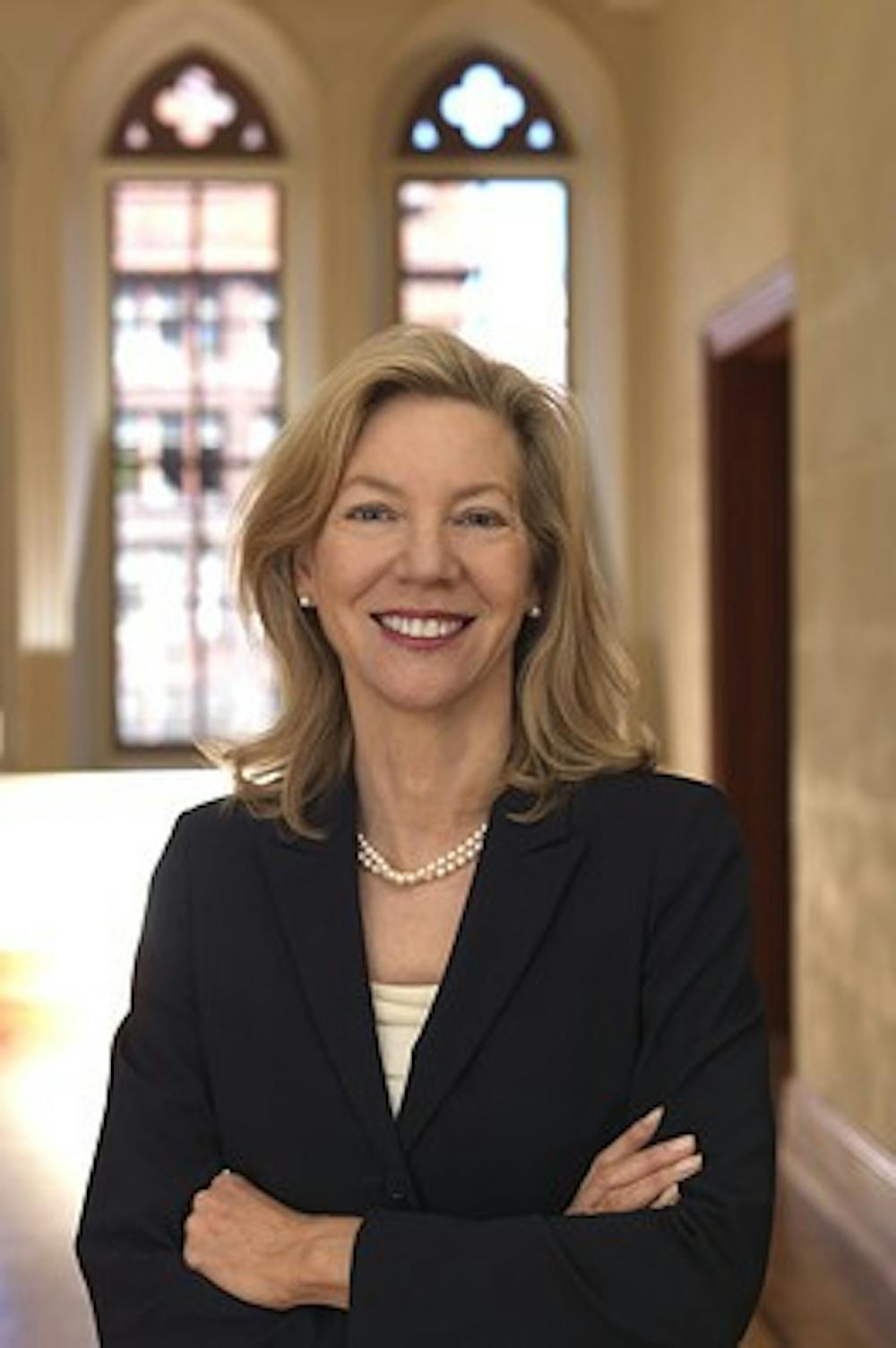Like Amy G. Hasn't Already Written Her 300 Page Autobiography


Today's Wall Street Journal features an article in which they asked (threatened with scathing articles?) college presidents to submit a response to one of their own institution's undergraduate application essay questions. We were delighted to see that our very own Amy Gutmann was chosen and was somehow coerced into answering the infamous "Page 217 of your 300 page autobiography" question. We were not delighted to see that her response was bo-ring.
Maybe it's just that we had to had to struggle to actually come up with a decent piece of fiction (or else predict an untimely death), but we're pretty sure that writing about something that's already happened is a major cop out. In 564 words, Amy G. covers her tenure at Princeton, including "three enduring contributions to moral and political philosophy" along with her appointment to Penn and her creation of the Penn Compact. Since the WSJ insisted that the presidents couldn't get any help from their PR folks, it seems likely that Leah Popowich didn't churn this one out, but we're not sure if the Kelly Writer's House counts as friends and family. Maybe they could've spiced it up a bit? Nevertheless, the autobiography that we really want to read page 217 of is Lee Stetson's — we're sure that'll be juicy.
Read Amy's essay, after the jump.
As a college undergraduate, I had dreamed of joining the faculty of a distinguished university and making a lasting scholarly mark in political philosophy.As the twentieth century drew to a close, both dreams had come true. I had served on Princeton's faculty for nearly three decades, and mentored two generations of great young scholars who now hold teaching appointments at illustrious universities around the world.
And I had made three enduring contributions to moral and political philosophy.
I had formulated a systematic analysis of the importance of democratic education for democratic politics. This analysis became the touchstone for the values of liberty, opportunity, and mutual respect among diverse individuals that I aspired to advance throughout my professional career.
I had developed a theory of deliberative democracy with Dennis Thompson, which we offered as an antidote to the coarseness, intransigence, and extremism that too often has degraded democratic politics and public discourse. By demonstrating how deliberation and mutual respect could elevate the quality of democratic debate, we presented a model for placing moral reasoning at the center of everyday politics, and for making the most out of the many moral disagreements that come with the territory of democratic politics.
And I had originated a new political theory in which identity groups are neither friends nor enemies of democratic justice. I argued that identity groups pose distinctive challenges to democratic societies that have been neglected both by political theorists who overlook the advantages of organizing on the basis of mutual identity in democratic politics and by political scientists who lump all politically relevant organizations together under the rubric of interest group politics.
The more I accomplished as a scholar and teacher, the stronger my desire grew to test my theories of education and deliberative democracy in practice. My first opportunity came at Princeton, where I founded the University Center for Human Values to encourage innovative teaching, scholarship, and public deliberation on important ethical issues in private and public life.
Becoming Penn's President in 2004 consummated the match between my scholarly yearnings and my aspirations for higher education. No sooner had I begun writing my presidential inaugural address than the political philosopher in me took over. Instead of delivering the standard omnibus address that no one will remember, why not propose a new social contract to put the ideals of higher education into ever more effective practice?
Because the vision of a social contract is larger than the person who proposes it, I gave the contract a banner name that would unite the whole University community: the Penn Compact. I gave the contract an overarching goal: Penn would rise from excellence to eminence. Then I laid out the Compact's three governing principles: We would increase access for talented, hardworking students of all backgrounds by strengthening financial aid based on need; we would empower our faculty and students to integrate knowledge by breaking down the silos that separate the liberal arts from the professions and the academic disciplines from one another; and we would put our integrated knowledge to work by engaging in a spirit of partnership with our neighbors in Philadelphia and with communities throughout America and around the world.
Penn's extended family of students, faculty, alumni, and staff rallied immediately around the Penn Compact, and the revolutionary academy founded by Benjamin Franklin was on its way toward becoming a more eminent and well integrated university.